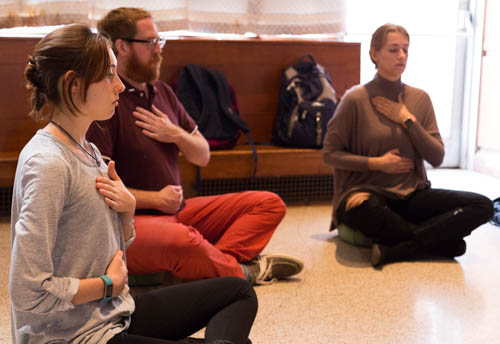The academic and social environment that we find ourselves in has led us to constantly be involved in something. The academic rigor takes its toll on us through homework assignments and the series of exams throughout the semester. And even when we’re not actively working on homework or studying, we are mentally occupied by thinking and stressing about our work. On the other hand, the vibrant social scene also contributes to our constant involvement in activities. There is so much to do on campus that we do not need to ever worry about how we will spend our free time.
While it is a boon to have so many academic and social activities to involve yourself with, it drives you to constantly be busy and mentally-occupied. And in this kind of situation, one that many college students find themselves in, taking some time out of your day or week to “do nothing” can be very beneficial.
“Doing nothing” does not mean scrolling through your Instagram feed, casually checking your email or even hanging out with your friends; it should be taken more literally. “Doing nothing” should slow you down, make you feel relaxed and give you mental space. It could be staring outside of your window or into space, sitting on a park bench admiring the view, walking aimlessly about or taking a short nap. It can be anything that allows your mind to be temporarily blank.
Now, it might seem like a waste of time or bring on guilt to simply sit around and “do nothing” while one is bombarded with work, or one might be perceived as being lazy for doing so, but it has several benefits. One of the most important ones being productivity and creativity. Taking just a little bit of time out of your day to “do nothing” will actually make you more efficient with your work and boost your creativity. Our brains are computers, after all, and need time to rest and recharge. Companies such as Google offer workplace perks, such as a relaxing meditation course, that might seem completely counterintuitive to the fast-paced work environment, but actually help employees to avoid burnout.
“Doing nothing” also allows you to gain perspective and clarity on the things that you are involved with. The things of utmost importance to you present themselves and the less important things wither away. You gain the opportunity to reevaluate the problems you face and are better prepared to deal with them afterward. Especially because we live in a time when we’re constantly being bombarded with information, taking the time to gain some clarity is well worth your while.
One of the more underrated benefits of “doing nothing” is its promotion of emotional well-being. It’s well-known that college students are usually under lot of stress. It’s especially important during stressful times to take your mind off everything that you have to do and to relax. It will not only help you get more done in the end, but it will also help you keep your stress and anxiety levels in check.
In my personal experience, as challenging as it has been to remove myself from my work and responsibilities sometimes, it has been worthwhile. The motivation and inspiration that I receive from sitting on a bench by the campus pond for a little while and “doing nothing” is unmatched.
We, as college students, have filled our academic and social lives so full to the brim that we no longer are able to put our minds and bodies to rest. And any little free time is wasted by worrying about responsibilities or by mind-numbing social media scrolling. In this case, why not use that free time to “do nothing” the correct way? At first, it might seem daunting to make such a lifestyle change, but it does not have to be a drastic change at all. A mere five to 10 minutes a day or whenever you are feeling especially overwhelmed is a perfectly appropriate amount of time to “do nothing” and reap the many benefits.
Rithika Senthilkumar is a Collegian columnist and can be reached at [email protected].


















